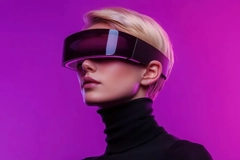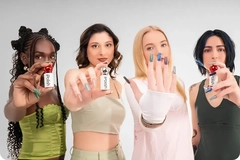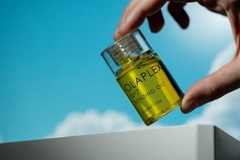K-beauty and AI drive rapid cosmetic innovation

Data and artificial intelligence (AI) are increasingly used in the cosmetics industry, especially for K-beauty. According to Trendier AI, beauty companies can cut their marketing research and production time by tenfold, innovate new ingredients, and speed up consumer feedback by using the emerging technology.
“[AI in the beauty industry] isn’t just about the future, it’s already happening now. AI is being applied across the entire value chain of the beauty industry. This includes new ingredient research, product concept development, creating marketing claims, social media content creation, and global sales strategy,” Kei Chun, CEO and co-founder of Trendier AI, tells Personal Care Insights.
“Tasks like market analysis and product planning, which used to take months, can now be done in hours. We expect this trend to accelerate and predict that many of these areas will be significantly automated within the next three years.”
“This will free up beauty professionals from repetitive tasks, allowing them to focus on more creative and strategic work,” adds Chun.
AI boot camp
The South Korea-based company offers an AI boot camp and a hands-on workshop on data-driven decision-making for beauty brands.
“The K-beauty industry is all about speed and dynamism. Our bootcamp gives brands, buyers, and manufacturers the practical tools they need to succeed in this competitive environment,” says Chun.
“Participants use our platform to predict the next ingredient, analyze what makes competitors successful, and generate effective marketing copy in minutes. In short, it helps them move from relying on gut feelings to making smart, data-backed innovations that reduce risks and increase the chances of success.”
K-beauty in the lead
In Spate’s 2025 beauty trends forecast last year, K-beauty was estimated to continue influencing skin care and makeup trends in international beauty.
 Chun says the K-beauty industry is adapting AI more than the global personal care industry.K-beauty World, a retail platform for consumers to navigate K-beauty brands, announced its US debut yesterday by launching on Ulta Beauty.
Chun says the K-beauty industry is adapting AI more than the global personal care industry.K-beauty World, a retail platform for consumers to navigate K-beauty brands, announced its US debut yesterday by launching on Ulta Beauty.
Chun says the K-beauty industry is adapting AI more than the global personal care industry, because of a stronger need and greater willingness.
He explains that the rapid adoption is born from a necessity for brands to survive. “The essence of K-beauty is its overwhelming speed and relentless innovation.”
“While global brands might launch one or two major products yearly, the K-beauty market sees hundreds of new products monthly. On top of that, K-beauty consumers are among the fastest and most demanding worldwide when giving feedback directly to brands.”
“In this incredibly fierce and dynamic environment, the ability to understand consumer needs with data and predict the next hit product is directly linked to survival. For K-beauty, AI isn’t an option — it’s an essential survival tool,” says Chun.
Beauty data’s complexity
A key challenge for beauty brands is an “absence of a foundational data layer,” says Chun.
“It is a major challenge for the beauty industry and a much bigger problem here than in other sectors. The core reason is beauty data’s extreme complexity and unstructured nature.”
 Trendier AI aims to combine consumer data with AI to transform the beauty industry’s decision-making processes.
Trendier AI aims to combine consumer data with AI to transform the beauty industry’s decision-making processes.
He explains that per product, there are hundreds of ingredients, constantly changing marketing claims and discounts, the voices of countless TikTokers and influencers, and thousands of customer reviews.
“It’s a tangled web of information. Furthermore, subjective experiences like how it feels on the skin, absorption rate, or scent are challenging to turn into numbers,” explains Chun.
He says this is particularly critical for beauty, as success depends on fast-changing trends and consumers’ emotional satisfaction.
“Without a foundational data layer to unify and analyze this data, companies can’t connect the dots to see the bigger picture,” says Chun.
Trendier AI aims to combine consumer data with AI to transform the beauty industry’s decision-making processes.
“We believe AI will become more than just an automation tool. It will be a bridge that helps brands and consumers understand each other more deeply. The future of beauty, we are certain, lies in this new, data-driven way of communicating,” Chun concludes.













